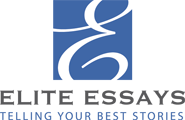Best MBA Interview Practices: Introducing Yourself
Most MBA applicants treat the interview with trepidation -- akin to an interrogation -- rather than what it is: a sales meeting, with you as the product. They spend their precious interview time defensively fielding individual questions with no overall strategy or approach to the entire interview. This is a huge missed opportunity. Given that this is a sales meeting, you should be prepared to deliver your strongest pitch before you even enter the room.
This approach sounds easier than it actually is, but if you’ve developed your application materials properly, then you should have a strong foundation to take this more aggressive approach, starting with your self-introduction.
“Please tell me about yourself.”
“Tell me about your background.”
“Describe your career development.”
“Walk me through your resume.”
After some small talk, one of these is likely to be your first questions, especially if the interview is “blind”, i.e., your interviewer knows little to nothing about you apart from the content of your resume. (HBS, MIT Sloan, and Wharton are exceptions as they approach interviews differently.)
The self-introduction is your chance to establish key themes and ideas and introduce essential supporting examples that you can expand on later in the interview. Think of the self-introduction as the “preview” to a blockbuster movie – it should get the interviewer engaged and excited for what’s to come. This is a more dynamic and vital approach then simply listing a little bit from each section of your resume, which is the standard, drab approach that I see from most applicants:
“My name is. I was born here. Studied here. Joined this company. Was promoted. Etc.”
The problem with this approach is that, as a listener, all the information has the same value. Your interviewer won’t know what’s important or what to care about. My advice is to strip out all non-essential information and start your introduction with a powerful, clear marketing or mission statement that captures your professional essence and drive in one sentence:
“I am an entrepreneur in a traditional company who has a clear plan to revitalize it.”
“I creatively empower my teams to achieve things that seem impossible.”
“My international experience has made me uniquely effective in a variety of global settings.”
Aren’t those a much more powerful way to start than your name and where you were born?
By reviewing your well-developed applications thoroughly, you should be able to find and distill these messages. (And if you can’t, get in touch with me.) Once you’ve established that killer foundation, you can then smoothly introduce key examples that demonstrate your theme and ideally your potential to achieve your goals, which will likely be one of the next questions your interviewer asks. If you’re really clever, you can actually outline your goals as well, even before the interviewer asks. Now that is taking initiative!
Of course, this is not the only way to introduce yourself. The interviewer might not even ask you to introduce yourself. That’s OK. By going through this exercise, you will undoubtedly derive important insights and material for your interview that you will be able to use somewhere during your conversation.
